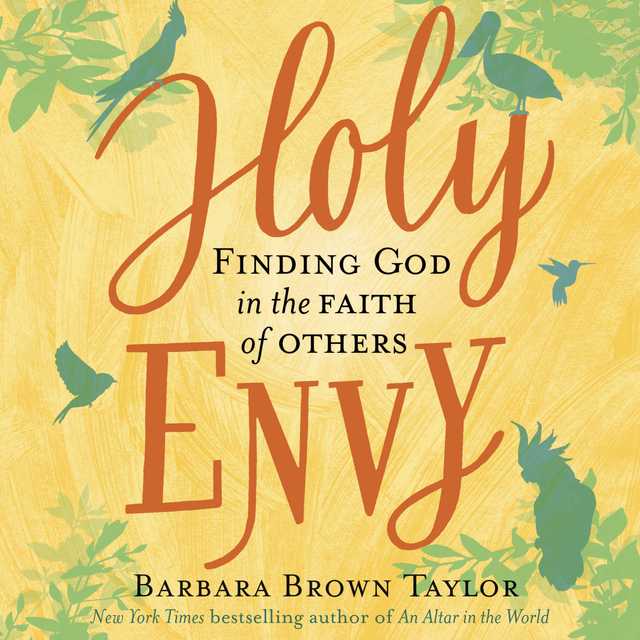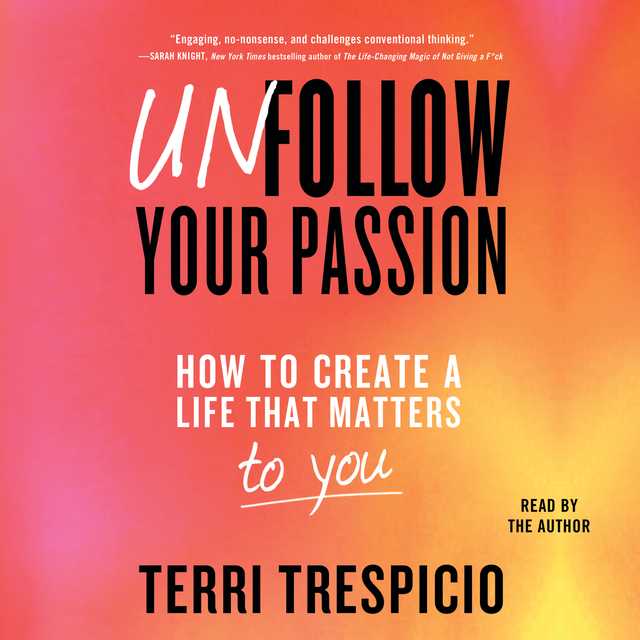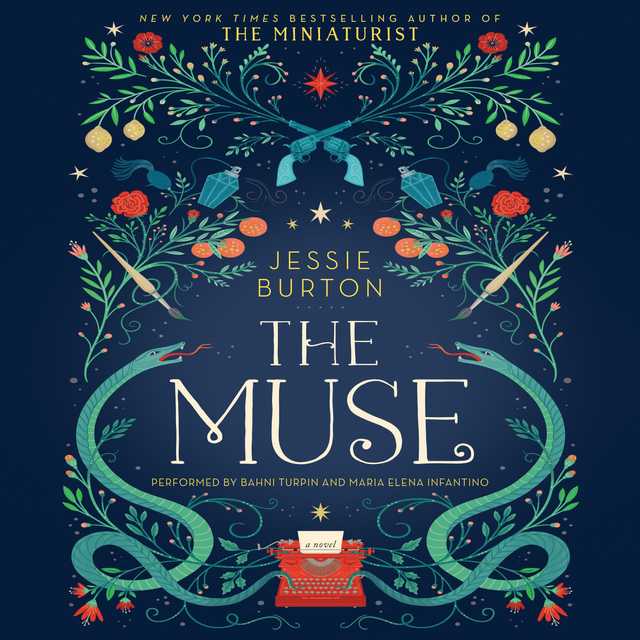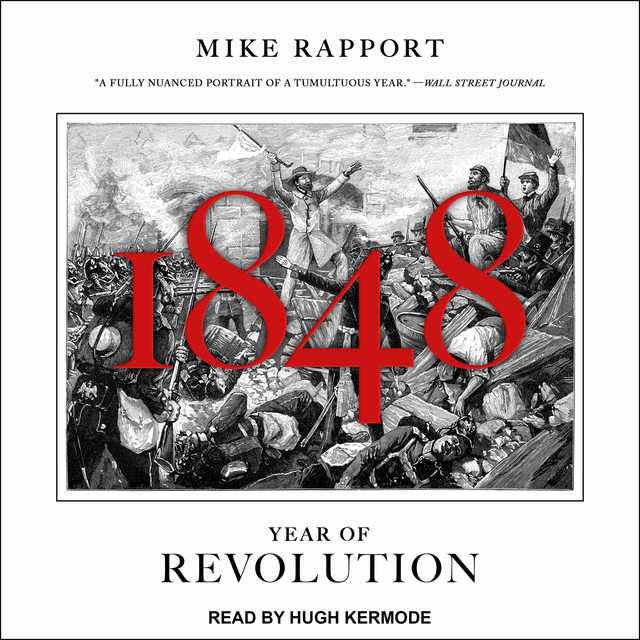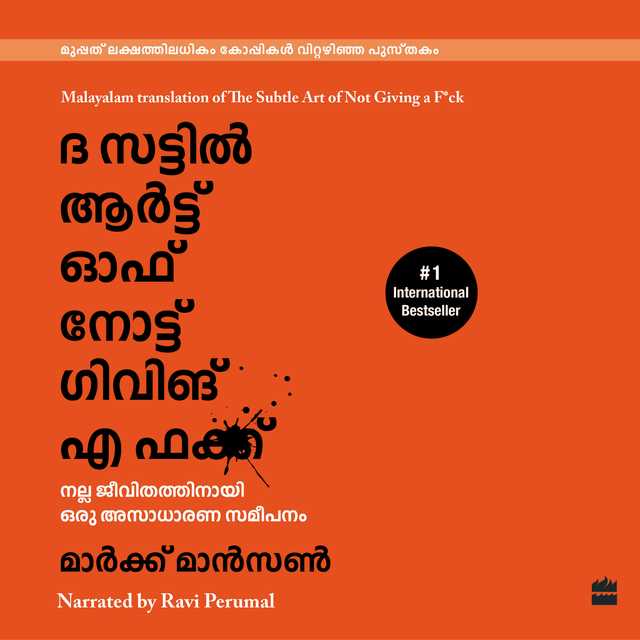Holy Envy Audiobook Summary
The renowned and beloved New York Times bestselling author of An Altar in the World and Learning to Walk in the Dark recounts her moving discoveries of finding the sacred in unexpected places while teaching the world’s religions to undergraduates in rural Georgia, revealing how God delights in confounding our expectations.
Barbara Brown Taylor continues her spiritual journey begun in Leaving Church of finding out what the world looks like after taking off her clergy collar. In Holy Envy, she contemplates the myriad ways other people and traditions encounter the Transcendent, both by digging deeper into those traditions herself and by seeing them through her students’ eyes as she sets off with them on field trips to monasteries, temples, and mosques.
Troubled and inspired by what she learns, Taylor returns to her own tradition for guidance, finding new meaning in old teachings that have too often been used to exclude religious strangers instead of embracing the divine challenges they present. Re-imagining some central stories from the religion she knows best, she takes heart in how often God chooses outsiders to teach insiders how out-of-bounds God really is.
Throughout Holy Envy, Taylor weaves together stories from the classroom with reflections on how her own spiritual journey has been complicated and renewed by connecting with people of other traditions–even those whose truths are quite different from hers. The one constant in her odyssey is the sense that God is the one calling her to disown her version of God–a change that ultimately enriches her faith in other human beings and in God.
Other Top Audiobooks
Holy Envy Audiobook Narrator
Hillary Huber is the narrator of Holy Envy audiobook that was written by Barbara Brown Taylor
Barbara Brown Taylor is the author of thirteen books, including the New York Times bestseller An Altar in the World and Leaving Church, which received an Author of the Year award from the Georgia Writers Association. Taylor is the Butman Professor of Religion at Piedmont College, where she has taught since 1998. She lives on a working farm in rural northeast Georgia with her husband, Ed.
About the Author(s) of Holy Envy
Barbara Brown Taylor is the author of Holy Envy
More From the Same
- Author : Barbara Brown Taylor
- Learning to Walk in the Dark
- Always a Guest
- Home by Another Way
- An Altar in the World
- Publisher : HarperAudio
- Abraham
- American Gods [TV Tie-In]
- Dead Ringer
- House of Sand and Fog
- Prey
Holy Envy Full Details
| Narrator | Hillary Huber |
| Length | 7 hours 26 minutes |
| Author | Barbara Brown Taylor |
| Category | |
| Publisher | HarperAudio |
| Release date | March 12, 2019 |
| ISBN | 9780062801364 |
Subjects
The publisher of the Holy Envy is HarperAudio. includes the following subjects: The BISAC Subject Code is Comparative Religion, Religion
Additional info
The publisher of the Holy Envy is HarperAudio. The imprint is HarperAudio. It is supplied by HarperAudio. The ISBN-13 is 9780062801364.
Global Availability
This book is only available in the United States.
Goodreads Reviews
Michael
March 30, 2019
Barbara Brown Taylor is perhaps the best thinker and writer that I ever blew the chance to hear live. Several years ago, I attended a conference at which she and Miroslov Volf were the featured speakers. Volf was the opening plenary speaker, and Taylor was the closing plenary speaker. I was not familiar with Taylor at the time, and I had a fairly small menu of flights to choose from when I booked the flight. So I chose an evening flight back home that required me to miss the closing session. To make up for it, I bought An Altar in the World and read it in the flight. By the time I landed, I realized what a mistake I had made.Since then, I have come to see Barbara Brown Taylor as an indispensable Christian writer. She combines depth and clarity, which are two traits that are rarely found together in any kind of writing. Other Christian writers I admire are deep without being clear (Miroslov Volf, for example) and clear without being particularly deep (Rachel Held Evans fills this category for me). Taylor is both. She has enough theological sophistication to write profound--and unread--treatises for fellow academics. But she writes like, well, a writer. And a really good one.Even though I knew this about her--her book Learning to Walk in the Dark was one of the best things that I read last year--I was fully prepared not to like Holy Envy. I don’t much like the term to begin with. Almost every time I have heard it used, it describes a sort of religious tourism that either 1) overly romanticizes distant religious practices (“look at all those noble savages worshipping God in their state of nature”) or just assumes that everything that another culture does is inherently superior to our own (“why can’t my Church look like the Sistine Chapel and have music by Bach?”) . Both of these attitudes drive me nuts.Not only does Taylor not adopt these attitudes. She tackles them head on and talks about the ethics of learning from other people’s religions. We cannot simply appropriate other people’s beliefs into our own--lifting them from their original context and adding them to our spiritual practice to show how open-minded we are. I mean, we can, but it is not a very ethical way to treat others. Holy Envy is not the same thing as spiritual imperialism. Taylor calls this "spiritual shoplifting," and it is not a good thing.Brown works out a much more nuanced approach. She grounds herself firmly in the Christian tradition, while, at the same time, acknowledging that this tradition is not uniquely or exclusively representative of God’s will. This is a very tricky position to occupy, since it involves reading against a fair bit of that tradition itself and very carefully interpreting its sacred texts. But she pulls it off and says something like (and I am paraphrasing here), “I am a Christian, and this is the context in which I experience God. It is a beautiful tradition, and I believe that it can lead me to God. But it is a tradition that works for people who have a specific set of experiences--and there are equally valid traditions that can lead people in different who experience the world differently to the same God, who is too big to be captured in any particular aspect.”Learning from other traditions, then, requires empathy, understanding, respect, and a lot of effort. It requires us to learn what other people believe, why they believe these things, and what aspect of God they address. When we do this, we can see some of the gaps in our understanding that grow out gaps in our experiences. A religion is basically a set of narratives that help us make sense of our relationship to things that are outside of ourselves--including divinity, nature, history, the universe, and other people. These are such big things that no set of narratives can say everything (or even most things) about them. So there is value in understanding the ways that other people, and other cultures, try to grapple with the “big questions.” They are big questions precisely because they support many answers.Perhaps the best metaphor for how Taylor sees religion is language. We all learn a language, and most of us are more comfortable using our own language than one we learned from others. However, learning another language can help us see things differently and understand concepts that we could never quite make clear in our own language. And usually, understanding another language teaches us things about our own language. (I never really understood how the subjunctive worked in English until I tried to learn how it works in Spanish). As Taylor puts it, “As natural as it may be to try to translate everything into my own religious language, I miss a lot when I persist in reducing everything to my own frame of reference” (34). Learning from the faith of others is very similar to learning from the language of others. And neither one can really be done without going to new places and meeting new people.The main body of the book is highly reflective memoir of Taylor’s experiences teaching a Survey of World Religion course to students at Piedmont College. A typical semester involved teaching five major world religions: Hinduism Buddhism, Judaism, Islam, and Christianity. She documents her experiences with mainly Christian students encountering these religions for the first time. She addresses some of the aspects of these religions that have helped her supplement blind spots in her own point of view: the Muslim relationship to prayer, for example, or the Hindu embrace of multiple spiritual paths.But she presents this as real work, not a tourist's vacation. We have to understand, not just the religions, but the people who practice them. She also flips the lens at the end of the book and shows the things about Christianity that can teach things to people of other faiths. Because this really isn’t a book about learning from other religions at all. It is a book about learning from other people who have religions. It is part of having humility and learning to love other people and to see them as fully human moral agents whose interactions with the divine are as valid and important as our own.
Melora
June 05, 2019
I haven't been "wow-ed" by all Barbara Brown Taylor's books -- some of them have seemed a bit fluffy -- but this is a good one. While I don't agree with everything she says, I do agree with her mostly, and she makes me think about why I believe as I do, which is always a good thing.
Ivonne
June 02, 2020
“Holy envy” is what author and Episcopal priest Barbara Taylor Brown calls the appreciation of the best of religions other than one’s own. While so many fear that learning about other major religions might shake one’s religious commitment, Taylor Brown found that it made her realize the commonalities among the world’s great faiths and caused her to appreciate all adherents. A wonderful read.Special thanks to Lucy Waterbury for introducing me to a fabulous Sunday School and this book.
Donna
February 13, 2021
Barbara Brown Taylor is an Episcopal priest, a World Religions professor, and an accomplished author. This is the first book of hers that I have read. I read and discussed it with my husband. Holy Envy, as Dr Taylor explains, is seeing the practices of other religions and wishing you had them in your own. Roughly. She shares her journey as a professor, and how it led to the opening of her mind and heart to the practices of other faiths. She describes many odd little moments when she would see God, or Jesus, in the practices of their faiths. I loved her descriptions of those moments. And her prescription for being a neighbor. This book is sometimes profound and sometimes angering, but it is never boring. I get the feeling she doesn’t mind if I disagree. And I loved the ending.
Amanda
June 30, 2019
A thoughtful and reflective journey through teaching a class on world religions, Barbara Brown Taylor's book offers insight and wisdom into the process of exploring the world of faith with open eyes. Having benefitted as a student from a similar world religions class in college, hearing her reflections brought those experiences back to life and reminded me that holy exists all around and within us, and exploring the faiths of others can only deepen our understanding of our own. Wonderful book.
Elyssa
April 09, 2019
An open messageThis book is well written and expansive. I find the message to bring more questions than answers and that is a good thing. I recommend this for anyone who is interested in living peacefully in an interfaith world.
Julianna
June 13, 2019
Reviewed for THC Reviews"4.5 star" Holy Envy was our latest book club pick. It’s part memoir as Barbara Brown Taylor details, to some extent, her time as a professor of world religions at Piedmont College. But really, as the sub-title says, it’s more of a discussion about how we can find God in the faith of others. The author has an interesting background, having grown up in a secular environment and not regularly attending church until she was a teen. Yet she ended up becoming an Episcopal priest. That later dovetailed into her becoming a professor of world religions which took her on yet another spiritual journey. During this time, she found much to appreciate in other religions, but still kept coming back to Christianity as her foundation. But along the way, she also discovered a healthy case of holy envy.What is holy envy, you may ask? Well, it’s all about finding those things in the religions of others to which you can relate to and appreciate, things that perhaps you wish your own faith did better, and then allowing those things to help transform your own beliefs. If you think this sounds like cultural appropriation, it really isn’t. It’s more about finding common ground with those of other faiths and allowing it to deepen your own. I think that many of us are pretty ignorant of other faiths besides our own (if we adhere to one at all), and so by learning about what others believe, we can be more accepting of them. Since Rev. Taylor taught at a church-affiliated college in a predominantly Christian area of the country, many of her students identified as Christian. Some of them were bothered by her teaching methods, which included field trips to other religions’ houses of worship. But there were other students who drank it in as not only an educational, but a spiritual experience as well. In fact, through her teaching experiences, Rev. Taylor herself learned much and grew spiritually.Rev. Taylor gives some background on each of the five major world religions she taught: Christianity, Islam, Judaism, Buddhism, and Hinduism. I learned a number things myself merely by reading this book, not just about other faiths, but also my own. I have to admit that there were some things that surprised me and maybe even made me a tad uncomfortable. Rev. Taylor said that happened to her as well, but over time, she’s worked through those issues. I think that’s where I am, as well, working through it all and figuring out exactly what I believe. But I love learning about all the ways in which the beliefs of other religions intersect with my own. I also enjoyed seeing certain Biblical passages interpreted in a different way from what I’m used to, offering fresh, new, valuable insights. As Rev. Taylor demonstrates through one of her metaphors, the reality is that, whatever our chosen faith, we’re riding just one wave in a much bigger ocean, and even within our chosen faith, there are so many divergent beliefs that it is pretty much impossible for one sect, denomination, or even an entire faith to have all the answers and be the only game in town. So for that reason, I highly recommend Holy Envy to anyone who is open to learning about other faiths or who might be searching for a way to peacefully co-exist in our religiously pluralistic society.
David
December 10, 2019
I got this as a delightful gift from a church member, who went to the trouble of getting it actually signed by Barbara Brown Taylor...and as a bookmark, provided a picture of Barbara Brown Taylor signing the actual book I was reading. Which was 1) just so danged nice, and 2) perhaps peak Barbara Brown Taylor.One can't go wrong with her writing, which is gracious and inviting and as warm as a hearth in winter. It's a thought provoking meditation on faith and the interplay between faiths, told from the perspective of one who teaches and explores with an open soul.It's a funny thing, though...I don't really feel that holy envy. Not really much at all. I mean, I'm in an interfaith marriage, and as a Christian pastor raised Jewish kids. I have Muslim and Buddhist and atheist friends, and have been known to chat happily with Wiccans.But I'm not really envious. I feel no sense of lack, no desire to be other than I am, no particular discontent with just following Jesus and being fine with that. Perhaps it's that as I've grown more and deeply aware of the wild polycultural variety in Christian faith, it feels like there's enough richness and complexity in my own tradition to fill well more than my meager lifetime. I've got enough work to do on the Jesus front, eh? It's not that I don't see commonalities, and don't find value even in the difference. I'm just not feeling that what I have isn't enough. "Daiyenu," as they say at a pesach seder. "It's enough." Even though I don't really feel that same yearning, this was still a delightful book.
Dnicebear
March 19, 2019
One of Ms Brown Taylor's students answered the question on the final exam like this:"When the imam told us...is my holy envy. He told us how he doesn't wish to convert us to Islam. He just wants us to be the best people we can be, regardless of religion. This was the most beautiful thing I have ever heard, and it's my holy envy because I wish Christianity was this way."I love to look at each religion Ms Brown Taylor taught to students at Piedmont College in Georgia, and, because I also follow Christ, I am especially enlivened by her looks at particular scriptures. The Tower of Babel, for example: "For reasons no one may ever understand G-d decided it would be helpful for people to be different instead of the same, if only because it would slow them down a little bit. G=d decided it would be good for them to have to stop on a regular basis and say, 'Could you say that a different way, please? I don't understand what you mean,' or 'Could you show me with you hands?' G-d decided it would be GOOD for them to stop taking their communication for granted and work a little harder at trying to understand each other."I feel like this book makes it even more possible to understand and value that there are many ways to say something important, beginning with HASHEM, BRAHMAN, SUNYATA, HOLY TRINITY, ALLAH.... I would add the many Indigenous ways too.
David
March 23, 2019
As an enthusiastic reader of all this author’s work, it isn’t even a little surprising that I love this one as much as I do. Brown Taylor’s spiritual journey is reminiscent of my own, and I found much to appreciate in the way she describes her devotion to and preference for the Christian faith in wh
Edward
March 21, 2021
Taylor’s book about teaching an introductory college course on world religions is not so much about any content of the course she taught as about the changes that came about in her attitude toward religion. Taylor is an ordained Episcopal minister whose background was an extensive one in Christian theology. She writes that she had reached a point of what she calls “compassion fatigue” where she began to lose enthusiasm and just felt as though her religious feelings were drying up. She was asked to teach a religion course at a nearby college and accepted, thinking that learning about other religions would offer a new challenge. The teaching of the course certainly did that. The title is apt as she notes that in learning about a new religion which in her course included Islam, Judaism, Buddhism, and Hinduism, the initial reaction is often one of a form of “envy.” Religious insights about humanity’s relationship to the eternal seem new and compelling, especially in contrast with one’s old and established beliefs (in Taylor’s case, Christianity), On reflection, though, a new respect is gained for both. One religion does not replace another, but makes a questioner value the best practices of each. Often, the forms and practices of one religion, when looked at closely are not so much opposed but overlap one another. For example, Islam, Judaism, and Christianity, all trace their sources back to Abraham. Or the crucifixion of Christ and the Hindu Shiva’s dancing in a ring of fire – no one rises again without first being destroyed. There are many obstacles to appreciating another religion. A basic concern is a certain defensiveness about one’s own religion. One of Taylor’s students questioned her with a naive but honest question, “If you really are a Christian, then are you going to help us see what is wrong with these other religions?” When she said no, that was not her aim, the student dropped the class She mentions a guide to examining other religions, that of not comparing your best to their worst, whether it be beliefs or practices. The goal should be, “Instead compare your best to their best so that each becomes better in its own distinct way.” She likens it to two top athletes, say tennis players, who shake hands at the end of a match, acknowledging not only good sportsmanship but one another’s excellence.Another notion that strikes her in her comparison of religions is that while she is a Christian she hadn’t realized that the knowledge of Christ is not “owned” by Christians. Hindus may see him as avatar who manifests the divine, Buddhists may see him in a lotus position as a Bodhisattva, a compassionate being. Jews see him as the shepherd of a deviant brand of Judaism, and Muslims as a prophet. There as many views of Christ as there are of God. Her conclusion, and I think a wise one, is that in seeking what is called God, a definitive notion, is not to be found in any one organized religion. That’s not to say that religions don’t contain truths but what becomes more important for her are human relationships. God comes to her, she hopes, in individual human beings who, whatever their professed beliefs, challenge her ideas and constantly revise them.
Chastidy
June 12, 2022
Growing up in the evangelical church I was never encouraged to read outside of my own bubble. In fact, it’s was discouraged. In my adulthood I have found a wealth of benefit to my own spiritual life and tradition by reading outside my circles. BBT and I don’t share all the same beliefs but I really value her writing and have gained a lot from it. I would say that I even have “holy envy” of how she sees humanity and creation. The biggest gain I receive from her writings is her ability to see the Imago Dei in people. She is the dead opposite of folks like John Piper who have sermons titled “the sin of empathy”. BBT and Piper are on opposite ends of the spectrum. For me I can hear the heart and compassion from BBT that stirs a deeper love for people in me. To me that reflects Jesus and the Gospel as it should. I take away from Taylor humility and compassion. It’s hard to go wrong with those as a starting place. In a world that is full of “in and out” groups her ability to see people is refreshing. If I had a negative take on her book it would be her section on evangelism. Although I agreed with her on several points and have some of the same concerns. (Even though I have spent my life as a minister and missionary). However, this is one area that she seemed to have the least amount of grace and also assigned motives to peoples actions without justification. I don’t think the best of us have purely altruistic motives but her take was harsh and honestly just inaccurate on why people evangelize. She was right on many points about the way it is done, the disrespect that is often communicated towards others and their beliefs, the white savior mentality and so forth. But she was not right in assigning motive. It was the one area in the book I didn’t think she gave a fair assessment.
Deb (Readerbuzz)
December 08, 2020
"...(Holy Envy) is the story of a Christian minister who lost her way in the church and found a new home in the classroom, where the course she taught most often was not Introduction to the New Testament, Church History, or Christian Theology, but Religions of the World. As soon as she recovered from the shock of meeting God in so many new hats, she fell for every religion she taught. When she taught Judaism, she wanted to be a rabbi. When she taught Buddhism, she wanted to be a monk. It was only when she taught Christianity that the fire sputtered, because her religion looked so different once she saw it lined up with the others. She always promised her students that studying other faiths would not make them lose their own. Then she lost hers, or at least the one she started out with. This is the story of how that happened and what happened next."Biblical scholar Krister Stendahl shared three rules of religious understanding:"1. When trying to understand another religion, you should ask the adherents of that religion and not its enemies.2. Don't compare your best to their worst.3. Leave room for holy envy.""(British theologian John) Hick argues that it is past time for a Copernican revolution in theology, in which God assumes the prime place at the center and Christianity joins the orbit of the great religions circling around."
Izette
September 04, 2019
I will be honest, I was hesitant to read this book. I think if you have grown up as a Christian you will have similar 'warning signs' going off that tells you....don't go there. Yet there was the overpowering urge to read it as I question my thinking.The thing is, my thinking has been challenged and changed over the last 5 years and what I know and grew up with is not congruent with I believe now.Holy Envy however brings a new perspective on the verses and passages I have learnt over the years. It challenges me to review my lens and perspective and in doing that, upgrading it. Man! I love how this book is making me think about 'how I love others as I do myself'. I would encourage you to read this if you're questioning your beliefs. It has not changed my beliefs, it has in fact brought back my faith and given a new frame.Regarding my rating - I rate it based on the impact it's had on me.
Elisabeth
April 20, 2021
Reading this book for class and had very low expectations. Based on the title, I expected this to be pretty corny. To an extent, that expectation was correct, but this book did a great job of introducing questions around the possibility of religious pluralism, the construction of God’s identity, and who owns “God(s).” I recommend this book to anyone who wants to learn more about religious pluralism, but hasn’t had much background on the topic. As someone who majored in theology, I sometimes forget how inaccesible those texts are to new religious learners, but this one is great.
Charlene
June 03, 2019
I came to this with high expectations: have enjoyed other books by Taylor, enjoyed hearing her speak, and anticipating hearing stories about her teaching experiences at a small rural Georgia college. I was not disappointed. She writes well, she is thoughtful and inspires thought in others, and has meaningful stories to share. Book is about her experiences & frustrations teaching World Religions course & some of the things about other religions that inspired envy in her, that she wished she had in her own Christian faith. Very nice to hear about the hospitality shown to her & students as they made visits to Hindu & Buddhist temples, mosque, and synagogue in the Atlanta area. This book is not about saying one faith is better than others but does say that there are many paths to God. And sometimes, she says, one realizes how radical Jesus really was when looking from outside the Christian Church.
Most Popular Audiobooks
Frequently asked questions
Listening to audiobooks not only easy, it is also very convenient. You can listen to audiobooks on almost every device. From your laptop to your smart phone or even a smart speaker like Apple HomePod or even Alexa. Here’s how you can get started listening to audiobooks.
- 1. Download your favorite audiobook app such as Speechify.
- 2. Sign up for an account.
- 3. Browse the library for the best audiobooks and select the first one for free
- 4. Download the audiobook file to your device
- 5. Open the Speechify audiobook app and select the audiobook you want to listen to.
- 6. Adjust the playback speed and other settings to your preference.
- 7. Press play and enjoy!
While you can listen to the bestsellers on almost any device, and preferences may vary, generally smart phones are offer the most convenience factor. You could be working out, grocery shopping, or even watching your dog in the dog park on a Saturday morning.
However, most audiobook apps work across multiple devices so you can pick up that riveting new Stephen King book you started at the dog park, back on your laptop when you get back home.
Speechify is one of the best apps for audiobooks. The pricing structure is the most competitive in the market and the app is easy to use. It features the best sellers and award winning authors. Listen to your favorite books or discover new ones and listen to real voice actors read to you. Getting started is easy, the first book is free.
Research showcasing the brain health benefits of reading on a regular basis is wide-ranging and undeniable. However, research comparing the benefits of reading vs listening is much more sparse. According to professor of psychology and author Dr. Kristen Willeumier, though, there is good reason to believe that the reading experience provided by audiobooks offers many of the same brain benefits as reading a physical book.
Audiobooks are recordings of books that are read aloud by a professional voice actor. The recordings are typically available for purchase and download in digital formats such as MP3, WMA, or AAC. They can also be streamed from online services like Speechify, Audible, AppleBooks, or Spotify.
You simply download the app onto your smart phone, create your account, and in Speechify, you can choose your first book, from our vast library of best-sellers and classics, to read for free.
Audiobooks, like real books can add up over time. Here’s where you can listen to audiobooks for free. Speechify let’s you read your first best seller for free. Apart from that, we have a vast selection of free audiobooks that you can enjoy. Get the same rich experience no matter if the book was free or not.
It depends. Yes, there are free audiobooks and paid audiobooks. Speechify offers a blend of both!
It varies. The easiest way depends on a few things. The app and service you use, which device, and platform. Speechify is the easiest way to listen to audiobooks. Downloading the app is quick. It is not a large app and does not eat up space on your iPhone or Android device.
Listening to audiobooks on your smart phone, with Speechify, is the easiest way to listen to audiobooks.

